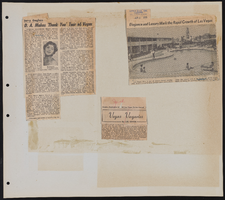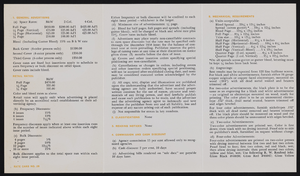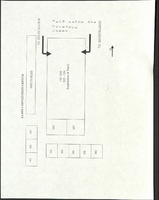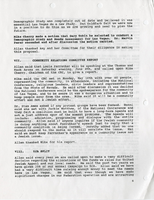Search the Special Collections and Archives Portal
Search Results
Del Webb Corporation Photograph Collection
Identifier
PH-00313
Abstract
The Del Webb Corporation Photograph Collection (approximately 1957 to 1988) consists of black-and-white photographic prints, black-and-white oversize reprints, negatives, and color slides focusing on the Mint Hotel and Casino in downtown Las Vegas, Nevada. Images depict the construction of a twenty-six story high-rise addition to the property, its grand opening and anniversary celebrations, the Mint 400 Off-Road race festivities, interior shots of the casino floor, restaurants and lounges, and a salon. Also included are exterior images of properties on Fremont Street considered to be competitors of the Mint, advertisements and billboards, and photographs of Del E. Webb and associates.
Archival Collection
Pagination
Refine my results
Content Type
Creator or Contributor
Subject
Archival Collection
Digital Project
Resource Type
Year
Material Type
Place
Language
Records Classification








